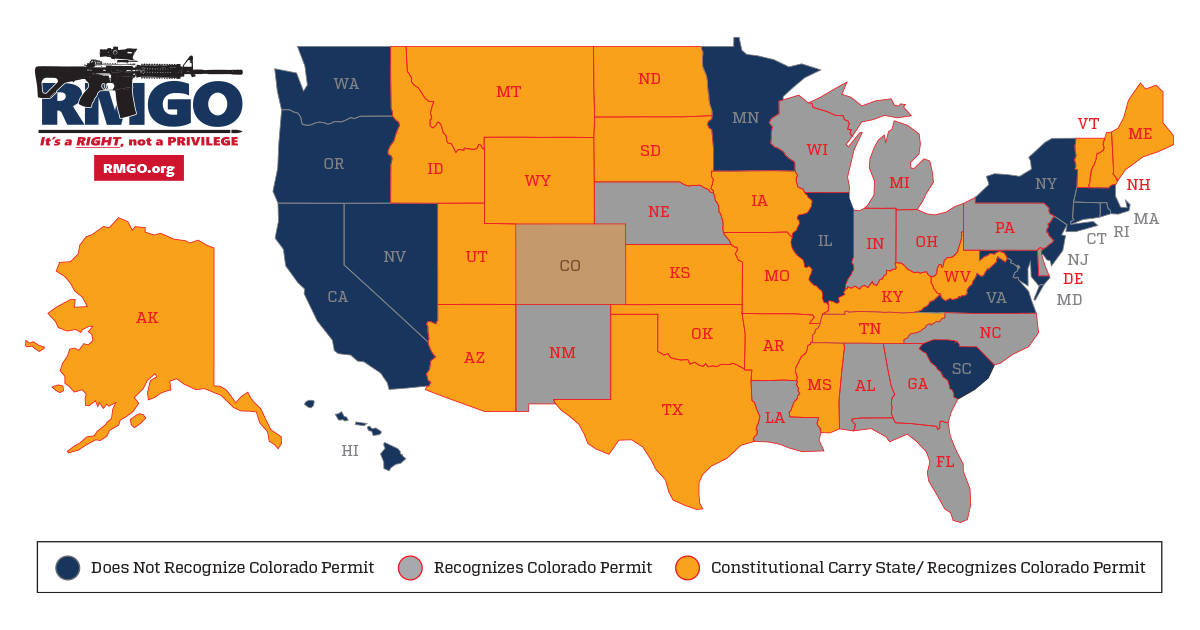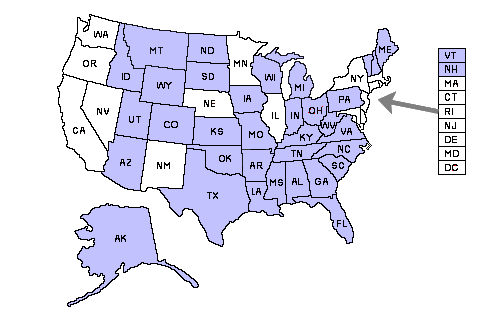Navigating the Complex Landscape of Concealed Carry Reciprocity: A Guide to Understanding the Georgia Reciprocity Map
Related Articles: Navigating the Complex Landscape of Concealed Carry Reciprocity: A Guide to Understanding the Georgia Reciprocity Map
Introduction
In this auspicious occasion, we are delighted to delve into the intriguing topic related to Navigating the Complex Landscape of Concealed Carry Reciprocity: A Guide to Understanding the Georgia Reciprocity Map. Let’s weave interesting information and offer fresh perspectives to the readers.
Table of Content
Navigating the Complex Landscape of Concealed Carry Reciprocity: A Guide to Understanding the Georgia Reciprocity Map

The right to bear arms is a fundamental aspect of American life, and for many, the ability to carry a concealed weapon for self-defense is a crucial part of that right. However, the laws governing concealed carry are not uniform across the United States. Each state has its own regulations, and understanding the intricacies of these laws is essential for responsible gun owners. This is where the concept of concealed carry reciprocity comes into play.
Reciprocity, in the context of concealed carry, refers to an agreement between states that allows a person with a concealed carry permit issued in one state to legally carry a concealed weapon in another state. This simplifies the process for gun owners traveling across state lines, ensuring they are legally compliant in their travels.
Understanding the Georgia Concealed Carry Reciprocity Map
Georgia, like many other states, has entered into reciprocity agreements with various states, creating a complex web of legal permissions. The Georgia Concealed Carry Reciprocity Map serves as a visual representation of these agreements, outlining which states recognize Georgia’s concealed carry permits and vice versa.
Key Points to Consider:
- Not all states recognize Georgia’s concealed carry permits: The Georgia reciprocity map reveals that while some states, such as Florida, Alabama, and South Carolina, honor Georgia’s permits, others, like New York and California, do not.
- Reciprocity is not always mutual: It’s crucial to understand that reciprocity is not always a two-way street. While Georgia might recognize a particular state’s permits, that state may not reciprocate. For example, Georgia recognizes permits from Texas, but Texas does not recognize permits from Georgia.
- Reciprocity agreements can change: It’s important to stay updated on the latest reciprocity agreements as they can change due to legislative actions, court rulings, or other factors.
- State laws may differ: Even in states where reciprocity exists, there might be specific regulations or limitations on the type of weapon or the manner in which it can be carried.
Importance and Benefits of Understanding Reciprocity
The Georgia Concealed Carry Reciprocity Map is a valuable resource for responsible gun owners traveling across state lines. It helps them:
- Ensure legal compliance: By understanding which states recognize their permits, gun owners can avoid potential legal issues and penalties.
- Plan travel routes: The map allows gun owners to plan their travel routes, ensuring they are legally allowed to carry their weapon in the states they are visiting.
- Avoid potential complications: Knowing the reciprocity agreements can prevent unexpected situations and complications during travel.
- Promote responsible gun ownership: By understanding the legal framework surrounding concealed carry, gun owners can promote a culture of responsible gun ownership and safety.
FAQs Regarding the Georgia Concealed Carry Reciprocity Map
Q: What types of permits are recognized under Georgia’s reciprocity agreements?
A: Georgia generally recognizes both concealed carry licenses and permits issued by other states. However, the specific types of permits recognized can vary depending on the state. It’s advisable to consult the Georgia Department of Public Safety website for the most up-to-date information.
Q: What if I’m traveling to a state that doesn’t recognize Georgia’s permit?
A: If you are traveling to a state that does not recognize Georgia’s permit, you will need to apply for a concealed carry permit in that state. The process for obtaining a permit varies from state to state. It’s essential to research the requirements and procedures for the specific state you are visiting.
Q: Are there any exceptions to reciprocity agreements?
A: Yes, there are exceptions to reciprocity agreements. Some states may have specific restrictions or limitations on the type of weapon that can be carried or the manner in which it can be carried. For example, a state may only recognize permits for handguns and not for other types of firearms.
Q: How often are the reciprocity agreements updated?
A: Reciprocity agreements are subject to change due to legislative actions, court rulings, or other factors. It’s essential to stay informed about the latest updates by checking the Georgia Department of Public Safety website or other reliable sources.
Tips for Responsible Gun Owners
- Always check the latest reciprocity agreements: Ensure you are aware of the most up-to-date information regarding reciprocity agreements before traveling.
- Research state-specific laws: Even in states with reciprocity, there might be specific regulations or limitations. Familiarize yourself with these laws before traveling.
- Carry your permit with you: Always carry your valid concealed carry permit with you while traveling.
- Be aware of your surroundings: Be mindful of your surroundings and follow all local laws and regulations.
- Exercise responsible gun ownership: Always practice safe gun handling and storage, and ensure your weapon is properly secured when not in use.
Conclusion
Understanding the Georgia Concealed Carry Reciprocity Map is crucial for responsible gun owners traveling across state lines. By familiarizing themselves with the agreements and regulations, gun owners can ensure legal compliance, avoid potential complications, and promote a culture of responsible gun ownership. It is essential to stay informed about the latest reciprocity agreements and state-specific laws to ensure safe and legal travel with a concealed weapon.








Closure
Thus, we hope this article has provided valuable insights into Navigating the Complex Landscape of Concealed Carry Reciprocity: A Guide to Understanding the Georgia Reciprocity Map. We thank you for taking the time to read this article. See you in our next article!